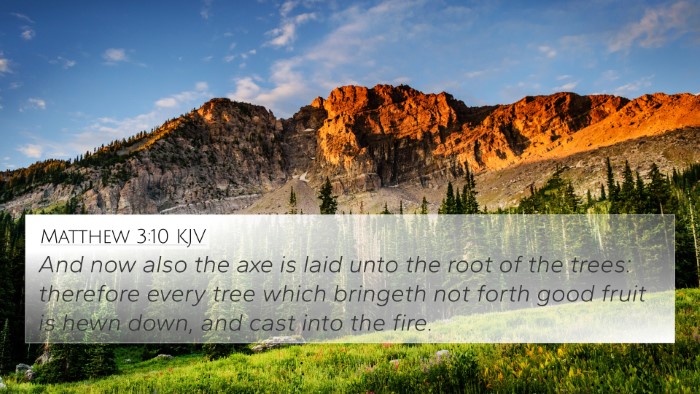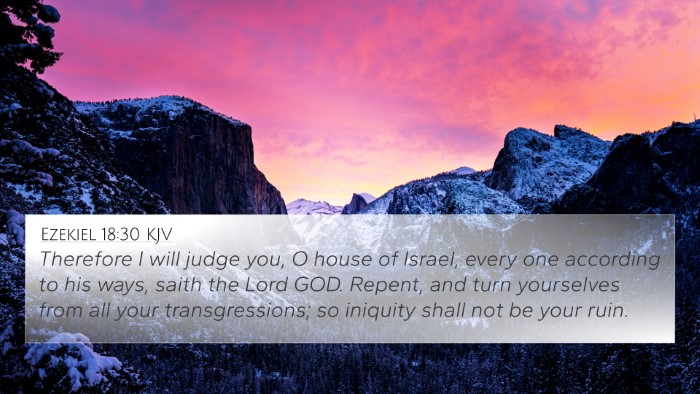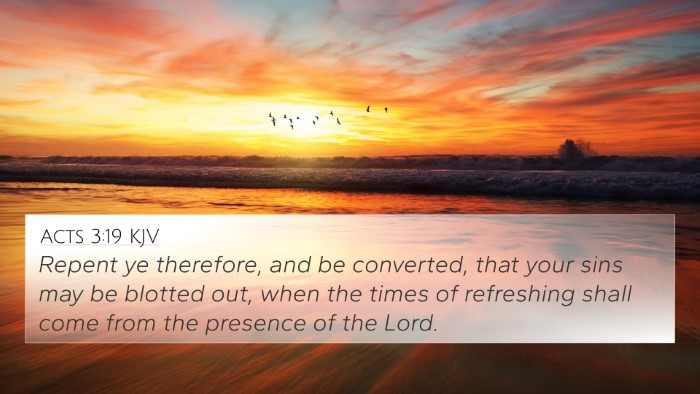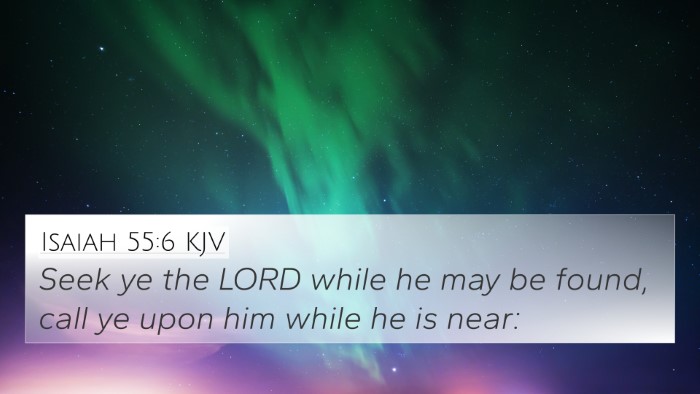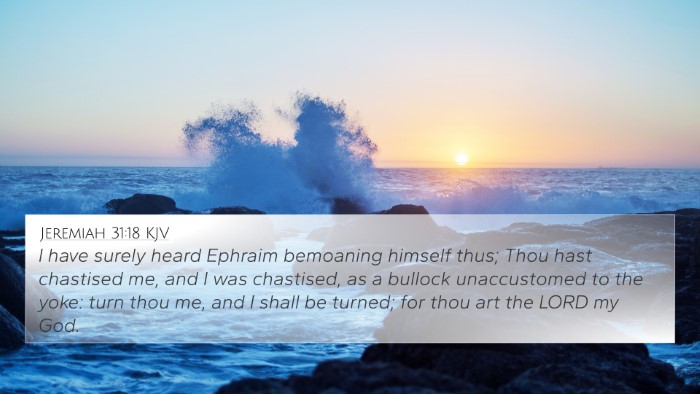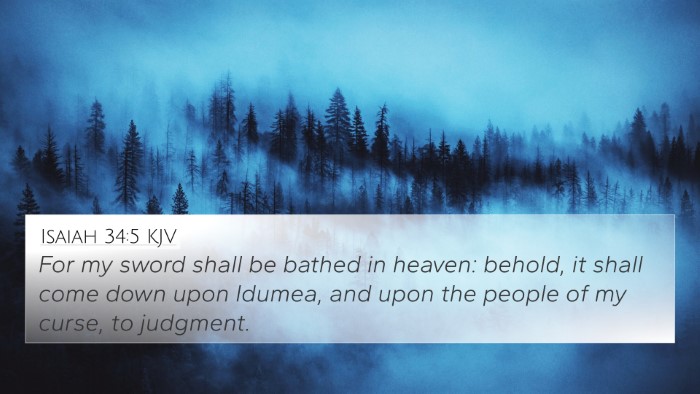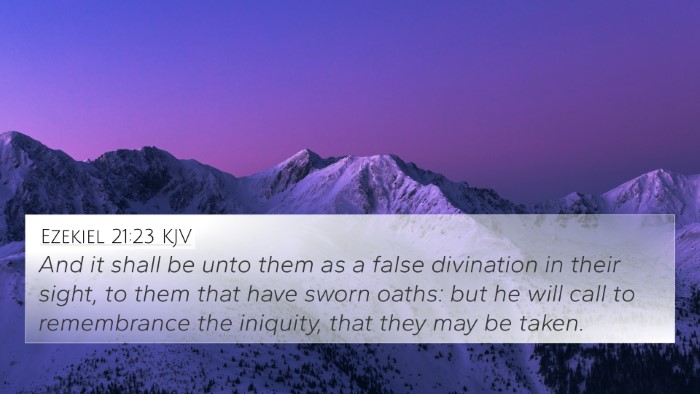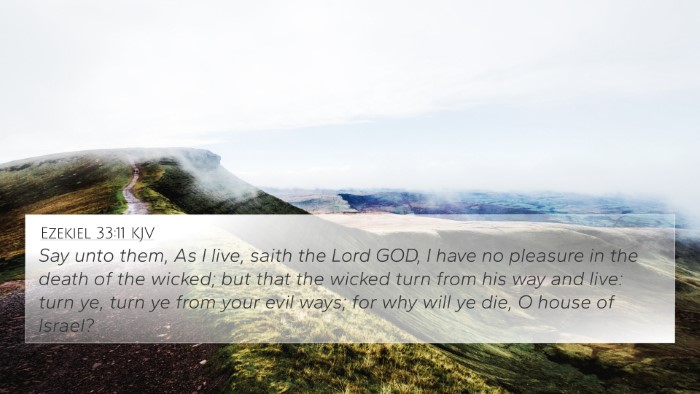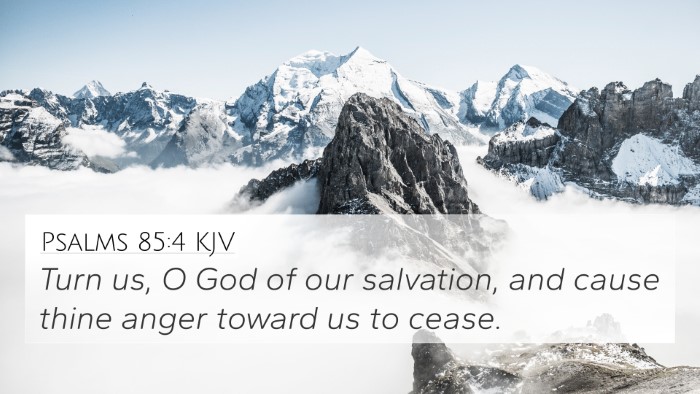Understanding Psalms 7:12 – A Comprehensive Analysis
Verse: Psalms 7:12 - "If a man does not repent, God will sharpen his sword; he has bent and readied his bow."
Summary: This verse addresses the gravity of unrepentant sin and implies a divine response from God against the unrighteous. The imagery of a sharpened sword and a ready bow symbolizes impending judgment that awaits those who persist in their wrongdoing.
Commentary Insights
This verse encapsulates several themes found throughout the Scriptures. Below is a combined analysis drawn from public domain commentaries by Matthew Henry, Albert Barnes, and Adam Clarke:
Matthew Henry's Commentary
Henry reflects on the nature of God’s justice, emphasizing that while God is patient, He will ultimately execute judgment if the sinner does not repent. The phrase "sharpen his sword" illustrates the preparedness of God's judgment against unrepentance. Henry encourages self-examination and repentance to avoid such fate.
Albert Barnes' Notes
Barnes elaborates on the metaphor of God’s sword and bow as instruments of wrath. He notes that God's readiness to act emphasizes the seriousness of sin and the necessity of repentance. The inevitability of divine judgment serves as both a warning and an invitation to return to righteousness.
Adam Clarke's Commentary
Clarke highlights the urgency of the message in the text, pointing out the dire consequences that accompany a stubborn heart. He believes that the use of weaponry in the imagery indicates the severity of God’s response to continued rebellion. Clarke also notes the hope that exists through repentance.
Thematic Connections and Cross-References
Understanding Psalms 7:12 involves exploring its connections with other scriptures. Here are 10 Bible cross-references that relate to this verse:
- Hebrews 10:31: "It is a fearful thing to fall into the hands of the living God." – This emphasizes the fearsome nature of divine judgment.
- Ezekiel 18:30: "Therefore I will judge you, O house of Israel, every one according to his ways, says the Lord God. Repent, and turn from all your offenses." – Similar themes of repentance and judgment.
- James 4:6: "But he gives more grace. Therefore it says, 'God opposes the proud, but gives grace to the humble.'" – Highlights the grace available to those who repent.
- Proverbs 28:13: "Whoever conceals his transgressions will not prosper, but he who confesses and forsakes them will obtain mercy." – Encouraging the act of repentance.
- Romans 2:5: "But because of your hard and impenitent heart you are storing up wrath for yourself on the day of wrath when God’s righteous judgment will be revealed." – Focuses on the consequences of unrepentance.
- Revelation 3:19: "Those whom I love, I reprove and discipline, so be zealous and repent." – God's call towards repentance demonstrates His love.
- Isaiah 55:7: "Let the wicked forsake his way, and the unrighteous man his thoughts; let him return to the Lord, that he may have compassion on him." – Invitation to the unrighteous to return to God.
- Galatians 6:7: "Do not be deceived: God is not mocked, for whatever one sows, that will he also reap." – The inevitable consequences of one’s choices and actions.
- Matthew 25:46: "And these will go away into eternal punishment, but the righteous into eternal life." – A stark warning of judgment post-life for those who remain unrepentant.
- Proverbs 11:21: "Be assured, an evil person will not go unpunished, but the offspring of the righteous will be delivered." – Reaffirms the justice of God.
Conclusion: The Importance of Repentance
Psalm 7:12 serves as a powerful reminder of God's righteousness and the importance of turning towards Him in repentance. It encourages readers to reflect on the theme of divine judgment and the mercy that is extended to those willing to turn from their wicked ways. Through this understanding and the connections drawn from related scriptures, one can appreciate the profound implications of this verse within biblical teachings.
Key Takeaways for Further Study
For those looking to dive deeper into scripture, the following tools can be utilized:
- Bible Concordance: For finding specific terms and themes within the Bible.
- Bible Cross-Reference Guide: To see related verse connections.
- Cross-Reference Bible Study: A methodical approach to studying the relationship between verses.
Understanding the scripture in depth allows believers to engage not only with individual verses but also with the broader narrative of faith, repentance, and divine justice present throughout the Bible.




